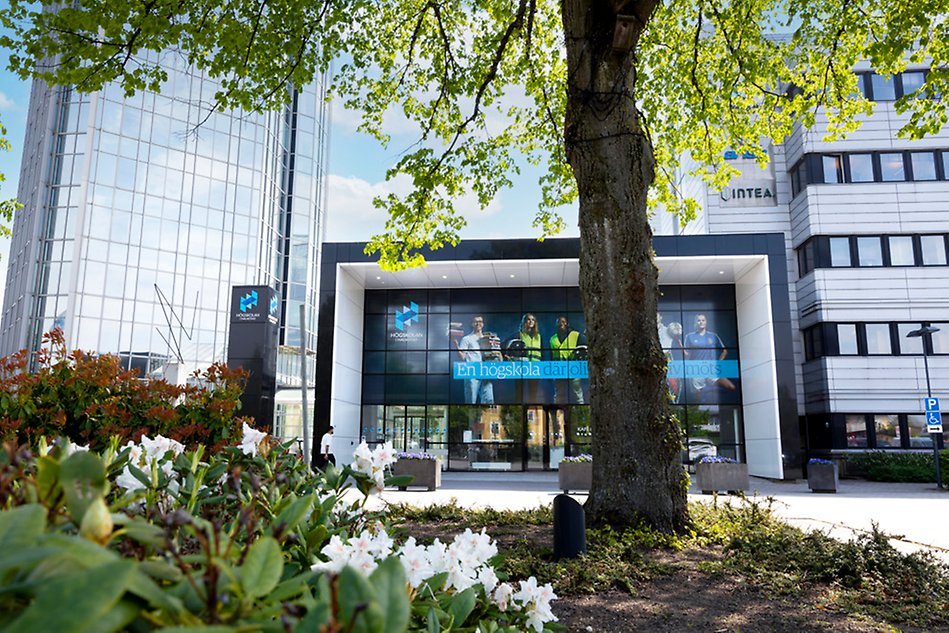National project within information-driven care is coordinated by Halmstad University
Vinnova grants funding for the new national project within information-driven care that the Health Data Center at Halmstad University will coordinate. The project brings together several regions, universities, companies and organisations in a joint effort to use data in order to improve healthcare.

The project is called Information-driven care – federated learning and synthetic data generation and will start in August. The goal for the autumn of 2022 is to launch a unique structure that makes it possible to use health data collectively from three regions: Region Halland, Region Örebro län and Region Kronoberg. In parallel, dialogues will be initiated with various stakeholders and actors, both within the regions and at national level. The purpose of these meetings is to increase the knowledge of how health data can benefit society at large, healthcare organisations, authorities, companies – and individuals.
“We are extremely happy for this! The project gives us the opportunity to spread the structure and competence that we have built up in Halland to more regions”, says Magnus Clarin, Dean of the School of Information Technology at Halmstad University and one of the initiators of the Health Data Center (HDC) which will coordinate the new project.
Connecting the regions
“The goal for HDC is to become a national node for information-driven care. We want to connect as many regions as possible in a structure of so-called federated learning in order to improve and streamline Swedish healthcare. The sharp project that we will implement during the autumn is a very important step towards this goal”, says Magnus Clarin.
Partners in the project Information-driven care – federated learning and synthetic data generation are Region Halland, Region Kronoberg, Region Örebro län, Hallandia V, AstraZeneca, Halmstad University, Örebro University and AI Sweden. The coordinator for the project is the Health Data Center (HDC), which is a centre for research and analytics within health data and AI at Halmstad University. The project will begin in August 2022 and is funded by Vinnova.
The project fits very well with the newly established research programme Information Driven Care (IDC) at Halmstad University. The project also links to the University's research profile in information-driven care, CAISR Health, and to the newly launched European innovation hub, Health Data Sweden (HDS).
Text: Louise Wandel
Photo: Anna-Frida Agardsson
The project Information-driven care - federated learning and synthetic data generation
The project will begin with stage 1 in the autumn of 2022. Stage 2 is expected to start in 2023 and involves further scaling nationally and internationally to include more stakeholders, data sources and analysis of additional patient groups as well as in-depth research and development of the technology.
The project's three overall objectives during stage 1:
- To create a scalable structure of federated learning (see separate fact box) by sharing health data from three regions: Region Halland, Region Örebro län and Region Kronoberg. The project will analyse data at population level from all three regions and as a first step develop AI-based prediction models for two specific patient groups – chronic kidney disease and heart failure.
- To begin the development of so-called synthetic generation of health data. Synthetic data is artificially generated information that carries no trace of personal information. Synthetic data that reflects real health data enables more companies, organisations and authorities to use data for the development of new products and solutions for health care.
- To initiate dialogues, both between the involved regions and with national authorities and organisations, to meet the challenges and changes that the new technology entails.
Federated learning
Federated learning is a machine learning technique that trains an algorithm over several decentralised nodes (which in this case consists of the regions) without the need to transfer data to the model owner. This makes the technology suitable for healthcare where handling of sensitive data is included. Since Sweden's regions have chosen different healthcare information systems with different providers, a national method of collecting health data must allow the regions' different structures. The federated technology is independent of which information system the regions have chosen, which makes it possible for each region to continue with its system provider and still develop powerful information-driven care.
Health Data Center
The Health Data Center (HDC) is a centre for research and analytics within health data and AI at Halmstad University. The core of HDC is a technical infrastructure that makes it possible to analyse and research on health data in a correct regulatory and secure way. At HDC, sharp projects can already be implemented today based on "real world data" together with, for example, the pharmaceutical industry. Analyses are made and prediction models are developed based on both clinical data and resource-related data from specific patient groups in Region Halland, which include heart failure, chronic kidney disease, diabetes, COPD or cancer. The project results provide a better basis for decision-making for clinicians and healthcare management at Region Halland. They also give the pharmaceutical companies a deeper understanding of the patient groups, which in the long run leads to more suitable drugs. For the academy, projects with “real world data” provide an opportunity to develop prediction models and deepen research within AI and information-driven care.


